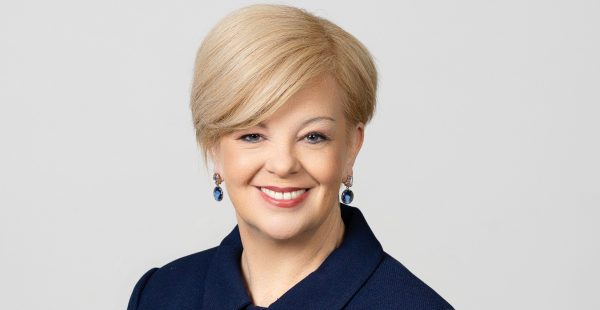FAAA urges reversal of ASIC’s approach on intrafund advice

The Financial Advice Association of Australia (FAAA) is urging a reversal of a recent Australian Securities and Investments Commission (ASIC) decision so that superannuation fund members have full visibility of the cost of providing intra-fund advice.
At the same time as opposing collective charging for the delivery of retirement planning advice, the FAAA has told Treasury that it wants full visibility of the costs being imposed on super fund members to provide advice.
What is more, the FAAA wants ASIC’s oversight of intra-fund or collective charging advice to be allocated to the superannuation funds sector of the purposes of ASIC levy.
“The cost of providing retirement planning advice will significantly increase the cost of running an intra-fund advice business, with flow on consequences for all members of the fund,” it said. “This will result in significant cross subsidisation within the fund with younger members paying for the personal retirement planning advice of older members.”
“Collective charging for retirement advice should not be permitted, because it will require many members to pay for a service which they have no potential to benefit from for many years,” it said.
The FAAA also pointed out that members who had already paid for their own financial advice should not be expected to pay for the provision of retirement planning advice to other members of the fund via collective charging.
“That is a form of double charging and quite unreasonable,” it said.
“Previously, the cost of intra-fund advice was separately disclosed to members of super funds. In recent years, ASIC removed this obligation from super funds. In the context of the potential broadening of the scope of advice that can be provided through a collective charging model, we recommend that the separate disclosure of the cost of intra-fund advice should be reintroduced,” the FAAA said.
“It would be beneficial for members to understand how much the fund is spending on financial advice being provided at no direct cost to the advised members, and this might prompt them to seek intra-fund advice themselves.
“We also recommend that super funds should publicly disclose each year the number of members accessing intra-fund advice, including the types of advice being provided and the cost of this advice,” the FAAA said.
“Finally, we suggest that the cost of any oversight by ASIC of the intra-fund or collective charging advice businesses, should be allocated to super funds for the purposes of the ASIC funding levy, not to financial advisers. It is unreasonable for financial advisers to pay for this activity, which only happens as a result of regulatory relief offered to super funds,” it said.











I have to write a new SoA for a widow to wind up the deceased spouses affairs, we had the public outage (via the media) about charging dead people and fee for no service. We had the vitriol for the incompetent Hayne….
But fee for no service seems ok now?
Are we allowed to do it too??
The double standards and rank hypocrisy are plumbing new lows.
This is after union funds have showed that even managing administration appropriately is being their competency levels. How on earth can they manage complex retirement advice???
I could not agree with you more, it’s gut wrenching! I fear Labour will claim massive mandate to do what they want, and Senate will go along
Stop the rubbish, Canberra woke renaming and speak the truth.
FORCEFULLY SPEAK THE TRUTH!!!
Collective Charging is an Industry Super Fund & ASIC name game, as they have been so against Evil Commissions for decades but now want Commissions on ISA FUM sales on mass.
Collective Charging = COMMISSIONS!!
And even worse ISA & ASIC don’t want them disclosed.
ISA Collective Charging = HIDDEN COMMISSIONS.
So let’s be clear, Industry Super & ASIC are promoting:
Industry Super & ASIC want to green light everything that they have said is evil for 25 years against Real Advisers.
Stop the woke BS renaming and speak the truth FAAAAAAAA.
This is absolutely the right fight for the FAAA to be taking on. Collective charging for retirement planning advice is a direct threat to both transparency and the integrity of the financial advice profession. ASIC’s refusal to require disclosure of intra-fund advice costs is not some isolated oversight—it’s part of a broader, coordinated effort to enable industry super funds to distribute retirement income products, particularly annuities, under the guise of “free” or heavily subsidised advice. That creates an uneven playing field, distorts the true cost of advice, and drives cross-subsidisation where younger or disengaged members foot the bill for others’ personal retirement planning.
The push toward a New Class of Adviser (NCA) only reinforces this—it’s a fund retention and lock-in strategy dressed up as reform. Members deserve clarity: if their fund is spending millions on subsidised advice to sell its own products, they should be told. And financial advisers, who are held to higher regulatory and disclosure standards, shouldn’t be left carrying the cost burden for oversight of a model that undermines their own business viability.
Credit to the FAAA for calling this out. The stakes here are existential—not just for their members, but for the future of independent, professional advice in Australia.
Wait until we tell the public about this new hidden cost. If the Government won’t fully disclose this, it shows an element of corrupt cooperation between ASIC and the Industry Funds. If they don’t disclose it the FPA and FAAA have an obligation to widely advertise and expose this theft of Australians retirement savings. It also imposes a large burden of costs on the younger generation without their explicit consent.
This should be fully disclosed to all members of Industry Funds or I believe we should instigate Royal Commission 2.0, and urge younger members to collectively sue these funds for loss of their super savings.
Collective charging is the re-introduction of commissions via stealth. You are still taking money and fees for no service. We just fixed this problem and now you want to reintroduce it. This will not end well when super members find out they are being collectively ripped off via collective charging.
The following is certainly true of ASIC & ISA’s:
Industry Super(ISA’s) & ASIC are promoting:
I cant wait for Royal Commission 2.0. Its going to be an incredible expose’ of the corruption between the labour party, ASIC, the treasury, and Industry Funds. Bring it on. When people see how their retirement savings and super are being stolen they will be outraged.